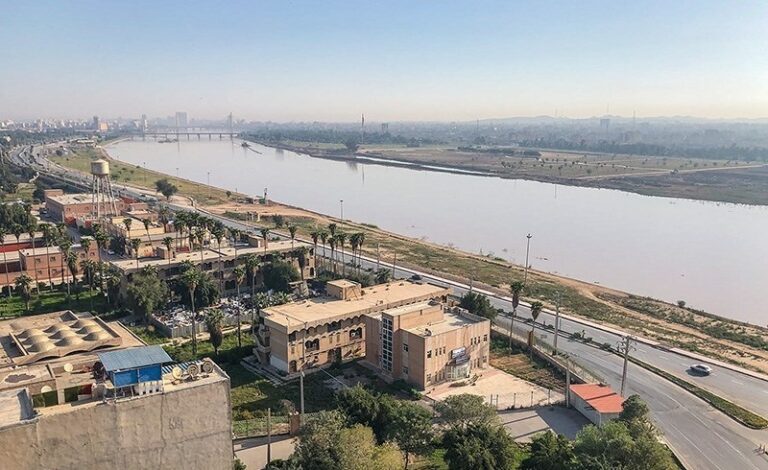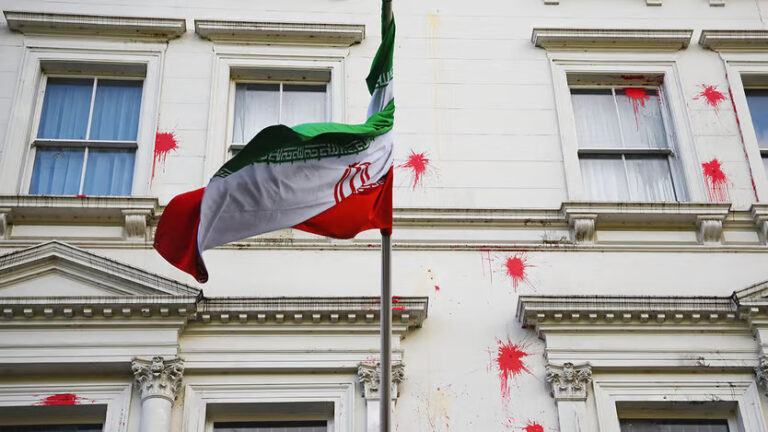By Saedieh Bentarif
Generally speaking by looking at current facts about Ahwazi Arab women, you see that these women have a similar
legal situation and conditions to other women in central areas of Iran. Nonetheless, Ahwazi women share same the same culture and social existence with women in neighbouring Arab countries.

legal situation and conditions to other women in central areas of Iran. Nonetheless, Ahwazi women share same the same culture and social existence with women in neighbouring Arab countries.
However, Ahwazi women are left far behind the two mentioned populations in terms of their social, cultural, economical, political and educational position. What is the reason?
We can not blame only the discriminatory laws against women in Islamic republic regime the cause of this problem. These laws are applied to both Ahwazi Arab women and women in central areas of Iran, although non-Persian women are subjected to more political repression.
We can not blame the ethnic tribal customs and traditions of Ahwazi Arabs people either. Women with same culture and social beliefs in neighbouring countries, for instance in Bahrain, have become advocates and judges, therefore this reason is not valid.
So, what is the main and real reason of chaotic and miserable situation in which Ahwazi Arab women find themselves? The answer lies in the regime’s policy of discrimination against other nationals within Iran’s geographic territories.
Non-Persian women suffer multiple discrimination in terms of laws and common laws and because they are less protected by law, therefore they are subjected to more social crimes and violence. We can point out the honour killing issue. These kind of crimes are perpetrated by men and the Islamic Republic regime laws facilitate the honour killing.
Legal violence
Men commit murder in the name of honour and dignity as they are aware that according to three articles of the Islamic Penal Code they are protected from punishment:
- Article 630 of Islamic Penal Code – whenever a man finds his wife committing adultery, being aware of her willingness [towards the adulterer], he may kill both his wife and the adulterer at the scene. Should the woman be under duress, he may only kill the man [the adulterer].
- Article 220 of Islamic Penal code- “a father or paternal grandfather who kills his children will be sentenced for maximum of 10 years imprisonment.”
- If the relatives of the murder victim do not complain against the murderer, by the law the murderer will not be sentenced.
In these type of crimes, the murderer and victim are usually from the same family and honour killings are perpetrated by either husband, father, brother, or one of the close family such as the paternal uncle. Therefore, according to these three law articles mentioned, a court can issue its decision (just or unjust) without any hearing.
The existence of such laws proves the fact that all women in Iran are subjected to violence and discrimination, but these violations are worse in non-central areas as these types of crimes are more reported in these areas.
For instance, Khuzestan (Arabistan) is leading other provinces in anti-women crimes, especially amongst Arab tribes. So we should ask why this grim phenomenon is more frequent in places where non-Persian people are living such as Arabs, Kurds, Baluchis, etc.
Of course part of this problem is the culture, customs and tribal systems of these regions. If laws were amended, there would be a huge decrease the number of these crimes in the central regions. But in peripheral regions, where non-Persian nationals live, the reduction would be small as people of these regions have tribal traditional views.
In order to eradicate this crime or reduce the number of killings in these areas what should be done? We need to build a culture similar to the Arab neighbouring countries. But how can we do this? What are the effective factors to build this culture?
Edward Taylor (1832-1917), defines culture as a complex collection of knowledge, beliefs, arts, laws, attitudes, customs, and anything a man learns from his society. So, culture can be passed to next generation through education. Therefore education is the key fundamental fact of building a culture.
Education facilities and culture building
How education can be provided?
The main and effective way of public education about honour killing is through general media. The role of the media role is undeniable in terms of educating societies and advancing prosperity. Media plays a significant role in increasing public knowledge and raising economic, social, political and educational awareness and forming public opinion. But the fundamental role of media is “culture building.”
It is obvious that television is the most powerful and effective media platform in culture building in non-Persian populated areas especially in terms of problems surrounding women. However, state television is entirely controlled by the government and it is working for the interest of this regime. The central government wants to sustain the traditional tribal systems among non-Persian people. This government knows that keeping these communities within these kinds of systems is the main obstacle to cultural improvement. It is a deliberate attempt to prevent these communities from culture-building.
Because this problem is rare in central areas of the Islamic Republic of Iran, the government is not keen to amend the laws and the authorities are not keen to tackle this problem though education and cultural activities. The worst problem is that this government does not allow independent Arab women rights activists to be active and prevent any demonstration against honour killing among Ahwazi Arabs.
The regime encourages and persuades these communities to solve their problems by tribal and common laws and maintaining patriarchal control, even in women’s issues. The regime’s policy is to lead these people away from civil laws and bind them to their tribal and ethnic roles so it can take advantage. By applying the tribal and traditional roles, people will be separated from the state in their daily political and economic affairs.
Non-native officials
The important and essential positions in Khuzestan (Arabistan), such as the representative for women’s issues in the provincial Governor’s office, have always been held by non-local, non-native and non-Arab officials both in the Islamic Republic and under the monarchist regimes. These women do not know the culture, customs and tradition of these people. They especially do not understand the problems facing Arab women in this area. Ahwazi Arab women are oppressed and suffer from illiteracy because they can not study in their language. How can they communicate with the Governor of the ethnic Persian chair of women affairs in the province?
According to the census, 70% of students have two languages. As half of these students are females, preventing study in the mother tongue and forcing them to study the official language has caused problems for their identity as well as education. This led to lack of confidence among women and the rate of women leaving school before graduation is high. In this case women are not capable to earn and make decisions, even in their own lives.
Ahwazi Arab women’s problems and concerns are rooted in their community culture, customs and traditions and they are not going to be solved unless there are civil society organisations which originate in the heart of their culture. These civil organisations can play a major role in providing the best environment to work against discrimination against women.
For this purpose a number of Ahwazi Arab activists from the Ahwazi Arab community have tried to form a society in support of Ahwazi Arab women, the majority of whom cannot speak Farsi, to listen to their pain and concerns. However, their request was refused by local officials as well as officials from central government. Due to lack of modern networking like internet in these areas, physical presence is the only way of campaigning against this grim phenomenon.
Ahwazi Arab women are capable of social activism, as seen in their participation in political activities during the short reformist reign of President Khatami which to some extent was politically tolerant. During this time, Ahwazi Arab women won three out of nine seats in the Arab-majority city of Showra. But in the current situation with the regime imposing discriminatory practices against ethnic nationals, women will be the most disadvantaged people. As such, it is no surprise that Ahwazi Arab women are absent from any social fields.
Translated from Farsi with the author’s permission
http://www.ahwaziarabs.info/2012/12/islamic-republic-anti-women-anti-arab.html
Translated from Farsi with the author’s permission
http://www.ahwaziarabs.info/2012/12/islamic-republic-anti-women-anti-arab.html











+ There are no comments
Add yours